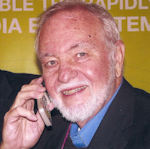Again my thanks to all of you who responded to my blog of July 22nd: What should colleges be teaching EEs? http://electronicdesign.com/blog/what-should-colleges-be-teaching-ee-sHere is what I discovered from a second reading of all the comments and the separate emails: A list of topics that many agree should be taught. I wouldn’t call it a complete consensus, but these topics showed up repeatedly.
First, most of you agree that the math/science/engineering fundamentals are essential and they should remain a strong part of the program. Second, you want to minimize the amount of new technology taught as it changes rapidly over time. I mostly agree with this but I still think you need to teach some of the current technology so as to create an employable engineer who does not look like an idiot the first day on the job. You know what I mean.
Anyway here are some suggestions you made:
- Communications - More than a few of you mentioned how important writing and speaking was to your career. I definitely agree with this. Engineers are constantly blamed for their poor writing and speaking ability and they deserve the criticism as it is true. The better you communicate the faster you will progress on the job. A couple of English courses in most BSEE curricula is not enough.
- Project management – All engineers will run a project, even if it is their own small part in a larger project. You need to learn planning, timing, costing, budgeting, and all that related stuff to be effective. Some team playing and personal interaction should be a part of this.
- Problem solving – What engineers do is solve problems. They apply their engineering talent to coming up with solutions including products that meet needs. And problem solving is also the essence of troubleshooting. What engineer does not do that? Reader Bob Schmidt sent me a note and a copy of his book The Dog Barks When the Phone Rings: An Engineer’s Guide to Solving Problems (Kokomo Press, 2013) that I wish every engineer could read. I don’t like the title but the book is full of problem solving basics and wisdom every engineer should know.
- Statistics - More than a few of you said that some knowledge of statistics and probability is essential today. Here is another one I agree with. I took a stat course in my Master’s degree work and wondered why at the time. As it turns out, I used it more than I realized. Still do. It is a big part of decision-making and testing these days. A great math elective if you can work it in.
- More software – Engineering is all about software today, not only for embedded systems but in the tools we use to design. Programming languages and design tools are the soldering irons of today. How about adding DSP to that. DSP seems to be in everything today and its all math algorithms and software.
- Test and Measurement – Isn’t this a major part of what most engineers do? Test, measure and troubleshoot? Yet rarely do modern students learn the basics of using a scope or spectrum analyzer or even simpler gear. Or finding really serious EMI that plagues us all today. Whatever happened to the lab work? Most T&M is to ensure the meeting of standards. Everything you design today has some standard associated with it. Something else they never tell you.
- PCB Layout – Here is a real practical skill that really involves deep engineering knowledge. With today’s high speed digital interfaces and gigabit RF circuits, it is ever more critical to most designs. This requires knowledge, skill and even some black magic to get it right.
I doubt that any of these things will develop into real courses as there is just no space left in most programs, but at least these topics should be incorporated into other courses. I do believe these will help produce a more “rounded” graduate.
I would like to add one more thing. Learning how to learn. Maybe most EEs do learn how they learn or they would never make it through an EE program. But this is a key skill that is essential to surviving as an EE or in any career. Any EE has to learn continuously all the stuff never taught in school as well as things needed for the immediate job. Some form of continuing education is critical to an EE career. All of us need to do as much as possible like read the magazines, join the IEEE, take webinars, read the latest white papers and app notes and try out the MOOCs (massive open online courses). Reader David Archer sent me a link to his website where he offers a wide range of continuing education online short courses for EEs. Check it out at www.learningmeasure.com.
If only we could get the professors to read this blog.

